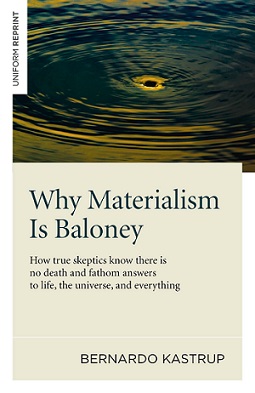|
home | what's new | other sites | contact | about |
||
|
Word Gems exploring self-realization, sacred personhood, and full humanity
The Purpose of Evil Part II
Several years after writing “The Purpose Of Evil, Part I,” today, it occurs to me that a “Part II” might be in order. Our problem is that we don’t really believe in any grand purpose for evil. We just want to condemn it and make it go away. We feel this way when we lose a job, a mate, our health; when we’ve been unjustly vilified and our reputation diminished; when we’re misunderstood, or even betrayed, by someone we're close to. We don’t want to hear that this is something we “needed” to satisfy some cosmic plan. only consciousness is real When we’re suffering in the trenches of life, floundering in the muck and mire of mortal existence, the sometimes-endless nightmare of this world’s “hell,” it’s hard to look up and notice the glory of the starry heavens. The fact remains, however, as we learn from ancient Spirit Guides – only consciousness, Universal Consciousness, is real. And we came to this world to access it, to “wake up,” to one's inner link to God, The Source.
the greatest mystery of your eternal life The many writings of the Word Gems site revolve about the reality of the afterlife; however, even more fundamental than this is the nature of what it means to be human. In a hundred articles I have discussed the “False Self” versus the “True Self” and how a sorting out of this systemic confusion is vital to our spiritual advancement, in this world and the next. I cannot revisit all that’s been said, but allow me to offer brief summary – as this directly touches upon the question of the “purpose of evil.”
we came to this world to individuate, to become a person, a “self” We call it the “ego,” a sense of “I,” of “me.” Little children and the mentally infirm lack this self-awareness. It’s what makes us fully human. Imagine yourself as God, planning the human race. How would you do it? Creating order-taking robots is easy, but how do you make a creature, endowed with a measure of free choice, that will voluntarily, under its own direction, choose the good as opposed to the bad? Order-taking robots have no problem doing the “right” thing all the time. It’s part of their programming. But what if a creature had no “programming,” as such, but could slip over the line into selfishness any time it chose to do so? This is very problematic. An entity with the power of volition, but beset with immaturity and lack of vision, will assuredly step over the line into incivility. Guaranteed. There was no "fall" in The Garden, that's just utter miscasting. Every human being falls down, and this was well known, far in advance. But even this assessment runs askew. It’s not really a moral issue for that newly-minted volitional creature. It's not that way. This is so because the first order of business is to become a person, a “self,” an “ego.” Without this, we’re just the small child, or the mentally infirm, or even the robot, with no inner guidance, no self-talk, no "me."
much, or maybe all, of what we label as “evil” is just the immature ego thrashing about, trying to come to terms with itself We speak of the “monkey mind,” the chattering "voice in the head” that will not be silent. So much of what we call “thinking” is dysfunctional, just an endless reiteration of what happened to us in the past and how we plan to find satisfaction in the future. I just called all this “dysfunctional,” but, in a larger sense, it’s all a work in process, all as planned, and everything’s humming smoothly. By this I mean that the “chattering voice in the head” that can’t stop thinking about itself and life-circumstance is doing one thing very well: It’s creating and strengthening an ego, a sense of self. It's becoming a person. This “little me” ego loves to see itself in competition against all others. This makes it feel stronger. It trusts no one, sees everything and everyone as a threat. Sounds like a sociopath. In a sense, it is this way, but, from that larger perspective, as the “little me” ego sets itself against all the world, it creates and strengthens itself. With every selfish act, while winning no “Miss Congeniality” award, it is succeeding at one thing -- it's becoming a person in its own right.
every untoward thought and deed might be categorized in this way We might be willing to forgive the common insults and rudeness of people in day-to-day society, but when it comes to the atrocities and barbarities of history, there we want to draw the line and proclaim, “I thank thee Lord that I am not like other men.” But this is gross illusion. As we’ve discussed elsewhere, any ego, sufficiently threatened, burdened with illusory perceptions of “I do not have enough” because “I am not enough,” is capable of any capital crime that’s ever been committed. You, or I, any of us, with the same experience and background, the same provocation, the same degree of blindness, would have done the same dark deeds; or worse.
so, what's the purpose of evil Well, for one thing, strictly speaking, maybe we can begin to see that there is no “evil,” as such. We want to believe that “evil” is something the bad guys do, but not us good guys, the ones from the better families, the better neighborhoods, the better socioeconomic levels. But, again, this is more gross illusion. We are all on the same continuum. “Evil” is not “out there” among some denominated class of villains as scapegoat. It’s very close to home - just look in the mirror next time you lose your sense of “presence,” that is, when the “False Self” takes you over. That mirror is the same one Dorian Gray used. He was shocked, too.
insanity Instead of “Evil,” we should think of the many inhumanities of life as examples of insanity. This is what Jesus meant when he said, “They know not what they do.” That person who cut you off in traffic and flipped you the bird is an immature, developing ego on a romp. And that person – a "person" in the making -- who spread rumors about you and hurt your reputation was just trying to make himself -- a sense of "self" -- more by making you less. And that person you love, who betrayed you, didn’t really mean it, as such – well, the intent of the moment was very clear, but there’s a deeper reason why it happened. He or she fell into that rage, driven and compelled by temporary developmental needs designed to strengthen a sense of ego, of “me” -- and did so at your expense. It really wasn’t personal at all. You just happened to be in the line of fire that day. He or she would have done something similar to anyone; and in our moments of "3 AM" introspection, we know that we've done the same.
we didn’t come to this world to learn about love or to become a better person This is a common misconception, offered by those who have not yet discovered the “False Self.” Love is not the problem. When we access the “True Self,” the natural love of God, resident in the soul of those "made in the image," we find that love comes flooding to the fore. It’s been there all the time, but under heavy cloud cover. And we didn’t come here to become a better person. That’s step two. For most of us, that happens in Summerland. The very first item on our “to do” list is to become a person. And that’s what this difficult world does for us so very well. We will find that becoming a good person is not that hard once we get “eyes in our head” and the “poking and jabbing” from clashing egos finally stops.
as Abraham Lincoln said, destroy your enemies by making them your friends Many egos whom, today, you count as enemies, will one day be your friends – and they will “plead insanity” as their defense. There’ll be a lot of that going around. And, about that person you love, the one who betrayed you, the memory of which hurts you every day, well, it will all be different one day.
|
||
|
|

